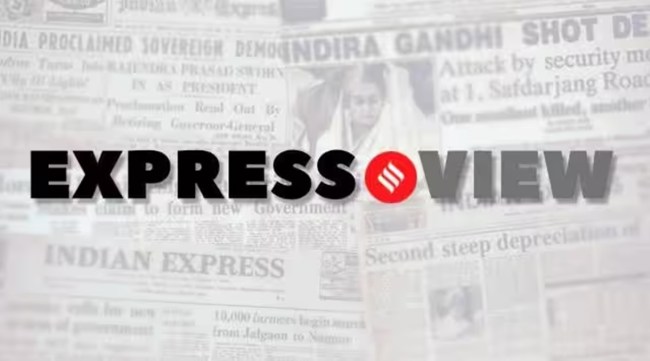Opinion Bombay HC is right – banning Pakistani artists is not the right step
Express View: Over the last decade, the casualties of the political chill between India and Pakistan have, sadly, been arts, culture and sports. These actions deprive both countries of ameliorative effect of cultural exchanges

The Bombay High Court did well last week to dismiss a petition seeking a total ban on Pakistani artistes working in India. Calling the petition “a retrograde step in promoting cultural harmony, unity and peace” that has “no merit in it”, Justice Sunil B Shukre and Justice Firdosh P Pooniwalla schooled the petitioner, a cine worker, on the joys of cross-border cultural cooperation: “Arts, music, sports, culture, dance and so on are the activities which rise above nationalities, cultures and nations and truly bring about peace, tranquility, unity and harmony in nation and between nations.”
The petitioner had sought directives from the Ministry of Information and Broadcasting, Ministry of External Affairs and Ministry of Home Affairs prohibiting the employment of Pakistani actors, technicians, singers, musicians and lyricists in India.
Over the last decade, the casualties of the political chill between India and Pakistan have, sadly, been arts, culture and sports. In the early 2010s, the success of Pakistani serials such as Humsafar (2011) and Zindagi Gulzar Hai (2012) had made room for Indian television channels such as Zindagi to stream syndicated shows from across the border and for Pakistani stars like Fawad Khan and Mahira Khan to sign up projects in Bollywood.
In music, the popularity of Atif Aslam or Rahat Fateh Ali Khan made their nationality irrelevant. The September 2016 Uri attack put an end to these cross-border exchanges with resolutions from the Indian Motion Pictures Producers Association and the Federation of Western India Cine Employees barring Pakistani artistes from working in the Indian film industry.
In 2019, the Pulwama strikes brought forth a resolution by the All-Indian Cine Workers Association, upholding the 2016 ban. Yet, there’s no denying the ameliorative effect that sports and cultural exchanges can have on relationships weighed down by shared trauma and shrill narratives of parochial nationalism.
The sight of a Pakistani fan rooting for both her team’s victory and Virat Kohli’s success at the recent Asia Cup or the massive fan following that actor Fawad Khan has in India or that Dilip Kumar enjoyed in Pakistan show what entrenched political positions often miss:
That when it comes down to the people, reconciliation — and hope — can come in many forms. In a song by your favourite musician or a century from the cricketer you adore, or even, in the form of your favourite star from across the border, lighting up the big screen with his dimples and twinkling eyes.






